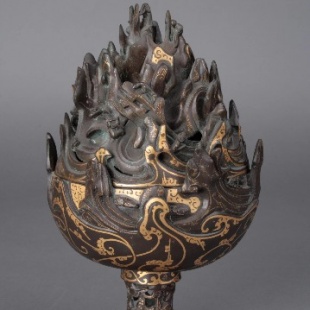The past continues to shape our future
Core ideas of Chinese philosophy examines how major questions were addressed, Li Yingxue reports.


Zhang mentions that the core of Chinese civilization embodies tremendous inclusiveness and peacefulness. Each time Chinese civilization faced challenges, it exhibited extraordinary resilience, absorbing risk into its cultural essence, and promoting leaps to higher levels and dimensions.
In Zhang's opinion, the core philosophical concepts in Chinese culture have a different origin from those in Western culture. Chinese culture originates from a different awareness of historical consciousness, he says.
"On this Earth, history unfolds on an immutable path through time and space, not in an 'otherworldly' realm. This has led to our nation's culture, rooted in a historical consciousness that persists from our ancestral heritage. This orientation and emphasis deeply embed the notion of 'life in this world' at the core of our culture," Zhang explains.
He takes the philosophical classic Tao Te Ching as an example that although Laozi explores the origin of the world and the universe, his reflections are always related to the worldly issues he seeks to explore, which is, how people can live in harmony with longevity and self-preservation in society according to the requirements of the Dao (meaning "the Way").
"This unique consciousness of existence, life and circumstance has led our nation's culture to focus on worldly matters from the very beginning. This is unlike the cultures of Christianity and Judaism, which emphasize concerns about an eternal world beyond," he says.
He notes that the concept of "life in this world" did not arise solely with the maturation of Chinese civilization. "Thanks to the discovery of oracle bone inscriptions, we have gained insights into the Shang Dynasty (c. 16th century-11th century BC), revealing that within their system of consciousness, there coexisted both a spiritual world and the realm of the living. However, it is essential to note that their understanding of this relationship differed from the concepts found in Greco-Roman civilization and the Hebrew-Christian civilization," he adds.
Zhang reveals that the initial motivation behind writing this book is closely related to his perspective on ethics he teaches in his course at university.





































